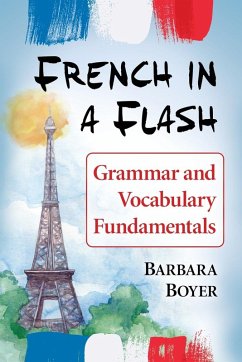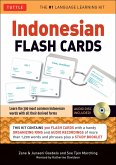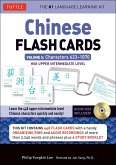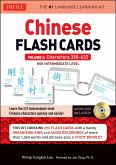- Broschiertes Buch
- Merkliste
- Auf die Merkliste
- Bewerten Bewerten
- Teilen
- Produkt teilen
- Produkterinnerung
- Produkterinnerung
Anyone looking for a study guide that makes learning French language easier and faster will benefit from this book. Ideal for both teachers and students of all levels, it can be used in a classroom or for self-directed learning. This is a useful reference guide for beginning learners or more advanced learners in need of review, for tutorial, homework practice and exam preparation.
Andere Kunden interessierten sich auch für
![Argot and Slang: A New French and English Dictionary of the Cant Words, Quaint Expressions, Slang Terms and Flash Phrases Used in the H Argot and Slang: A New French and English Dictionary of the Cant Words, Quaint Expressions, Slang Terms and Flash Phrases Used in the H]() Albert Marie Victor BarrèreArgot and Slang: A New French and English Dictionary of the Cant Words, Quaint Expressions, Slang Terms and Flash Phrases Used in the H44,99 €
Albert Marie Victor BarrèreArgot and Slang: A New French and English Dictionary of the Cant Words, Quaint Expressions, Slang Terms and Flash Phrases Used in the H44,99 €![Argot and Slang: A New French and English Dictionary of the Cant Words, Quaint Expressions, Slang Terms and Flash Phrases Used in the H Argot and Slang: A New French and English Dictionary of the Cant Words, Quaint Expressions, Slang Terms and Flash Phrases Used in the H]() Albert Marie Victor BarrèreArgot and Slang: A New French and English Dictionary of the Cant Words, Quaint Expressions, Slang Terms and Flash Phrases Used in the H31,99 €
Albert Marie Victor BarrèreArgot and Slang: A New French and English Dictionary of the Cant Words, Quaint Expressions, Slang Terms and Flash Phrases Used in the H31,99 €![Indonesian Flash Cards Indonesian Flash Cards]() Zane GoebelIndonesian Flash Cards18,99 €
Zane GoebelIndonesian Flash Cards18,99 €![Chinese Flash Cards Kit Volume 3 Chinese Flash Cards Kit Volume 3]() Philip Yungkin LeeChinese Flash Cards Kit Volume 330,99 €
Philip Yungkin LeeChinese Flash Cards Kit Volume 330,99 €![Chinese Flash Cards Kit Volume 2 Chinese Flash Cards Kit Volume 2]() Philip Yungkin LeeChinese Flash Cards Kit Volume 222,99 €
Philip Yungkin LeeChinese Flash Cards Kit Volume 222,99 €![Japanese Kanji Flash Cards Kit Volume 2 Japanese Kanji Flash Cards Kit Volume 2]() Alexander KaskJapanese Kanji Flash Cards Kit Volume 219,99 €
Alexander KaskJapanese Kanji Flash Cards Kit Volume 219,99 €![The Pronunciation of the French Language on a Mechanical Principle, or, A New, Rational and Practical Method for Effectually Imparting to Englishmen t The Pronunciation of the French Language on a Mechanical Principle, or, A New, Rational and Practical Method for Effectually Imparting to Englishmen t]() Laurent H. TremblayThe Pronunciation of the French Language on a Mechanical Principle, or, A New, Rational and Practical Method for Effectually Imparting to Englishmen t18,99 €
Laurent H. TremblayThe Pronunciation of the French Language on a Mechanical Principle, or, A New, Rational and Practical Method for Effectually Imparting to Englishmen t18,99 €-
-
-
Anyone looking for a study guide that makes learning French language easier and faster will benefit from this book. Ideal for both teachers and students of all levels, it can be used in a classroom or for self-directed learning. This is a useful reference guide for beginning learners or more advanced learners in need of review, for tutorial, homework practice and exam preparation.
Hinweis: Dieser Artikel kann nur an eine deutsche Lieferadresse ausgeliefert werden.
Hinweis: Dieser Artikel kann nur an eine deutsche Lieferadresse ausgeliefert werden.
Produktdetails
- Produktdetails
- Verlag: McFarland
- Seitenzahl: 378
- Erscheinungstermin: 1. April 2018
- Englisch
- Abmessung: 229mm x 152mm x 22mm
- Gewicht: 613g
- ISBN-13: 9781476668178
- ISBN-10: 1476668175
- Artikelnr.: 48140688
- Herstellerkennzeichnung
- Libri GmbH
- Europaallee 1
- 36244 Bad Hersfeld
- gpsr@libri.de
- Verlag: McFarland
- Seitenzahl: 378
- Erscheinungstermin: 1. April 2018
- Englisch
- Abmessung: 229mm x 152mm x 22mm
- Gewicht: 613g
- ISBN-13: 9781476668178
- ISBN-10: 1476668175
- Artikelnr.: 48140688
- Herstellerkennzeichnung
- Libri GmbH
- Europaallee 1
- 36244 Bad Hersfeld
- gpsr@libri.de
Barbara Boyer is a native of France with 20 years of experience teaching all levels of French language in American universities. She earned her Ph.D. from the University of Southern California. She is now an associate professor of French at Gonzaga University in Spokane, Washington.
Table of Contents Introduction 1: Pronunciation French Sounds
Alphabet and Accents
Nasal and Other Sounds
Pronunciation Tips
Syllable Stress
Introduce Yourself
Cognates
Suffix Patterns
Numbers Exercises
Answer Keys 2: Articles What Is an Article?
Main Rules
Indefinite Articles
Definite Articles
Partitive Articles
Exercises
Answer Keys 3: Nouns What Is a Noun?
Gender Forms
Plural Forms
List of Feminine Nouns
List of Masculine Nouns
Exercises
Answer Keys 4: Adjectives What Is an Adjective?
Summary
Gender Rules of Agreement
Number Rules of Agreement
Placement of Adjectives
List of Useful Adjectives
Exercises
Answer Keys 5: Adverbs What Is an Adverb?
How to Form an Adverb
Irregular Adverbs
List of Useful Adverbs
Exercises
Answer Keys 6: Prepositions What Is a Preposition?
List of Prepositions
Specific Occurrences
Contractions
Prepositions and Geographic Places
Summary
Exercises
Answer Keys
7: Comparatives and Superlatives What Is a Comparative?
What Is a Superlative?
Summary of Comparatives
Summary of Superlatives
Irregular Forms
Exercises
Answer Keys
8: Pronouns: Direct, Indirect, Y, En, Disjunctive What Is a Pronoun?
Things You Need to Know
Which Pronoun to Use
Summary
Position of the Pronouns
Exercises
Answer Keys
9: Relative Pronouns What Is a Relative Pronoun?
Which Pronoun to Use
(Ce) Qui, (Ce) Que, (Ce) Dont
Prepositions with Qui
Lequel, Auquel, Duquel, etc.
Summary
Exercises
Answer Keys 10: Verbs What Is a Verb?
Affirmative and Negative Forms
List of Verbs
Verbs and Prepositions
Reflexive Verbs
Moods and Tenses
Exercises
Answer Keys 11: Asking a Question How to Ask a Question
Interrogative Forms
Interrogative Words
Qui, Que, Quoi
List of Questions
Exercises
Answer Keys 12: Present Tense What Is the Present Tense?
What You Need to Know
Regular Verbs
Irregular Verbs
Negative Form
Exercises
Answer Keys 13: Past Tenses What Are the Past Tenses?
L'Imparfait
Le Passé Composé
L'Imparfait vs. le Passé Composé
Le Plus-que-Parfait
Negative Form
Irregular Past Participles
Exercises
Answer Keys 14: Future Tense and Conditional Mood What Is the Future Tense? What Is the Conditional Mood?
Conjugation
Summary for Future and Conditional
Irregularities and Exceptions
The "Si" Clause
The Near Future
Exercises
Answer Keys 15: Imperative Mood What Is the Imperative Mood?
Negative Imperative
Irregular Imperative
Imperative with Pronouns
Imperative with Reflexive Verbs
Exercises
Answer Keys 16: Subjunctive Mood What Is the Subjunctive Mood?
Present and Past Tenses
When to Use the Subjunctive
How to Form the Subjunctive
Expressions Followed by the Subjunctive
Irregularities and Exceptions
Exercises
Answer Keys 17: Passive Voice What Is the Passive Voice?
How to Form the Passive Voice
Different Tenses and Modes
Summary
Exercises
Answer Keys 18: Impersonal Expressions What Is an Impersonal Expression?
C'est vs. Il Est/Elle Est
Tout, Tous, Toute, Toutes
Expressions with Neutral Pronoun "Il"
Il y ä
Telling Time: Quelle Heure Est-Il?
Talking About the Weather: Quel Temps Fait-Il?
Exercises
Answer Keys 19: Other Parts of Speech Conjunction
Possessive Case
Demonstrative
Useful Expressions
Exercises
Answer Keys 20: Speak Like a French Person Spoken French
Confusing Expressions
Common Mistakes
Hard Words to Pronounce
Abbreviations
Acronyms
Idiomatic Expressions
Street Talk
Le Verlan
Exercises
Answer Keys Index
Alphabet and Accents
Nasal and Other Sounds
Pronunciation Tips
Syllable Stress
Introduce Yourself
Cognates
Suffix Patterns
Numbers Exercises
Answer Keys 2: Articles What Is an Article?
Main Rules
Indefinite Articles
Definite Articles
Partitive Articles
Exercises
Answer Keys 3: Nouns What Is a Noun?
Gender Forms
Plural Forms
List of Feminine Nouns
List of Masculine Nouns
Exercises
Answer Keys 4: Adjectives What Is an Adjective?
Summary
Gender Rules of Agreement
Number Rules of Agreement
Placement of Adjectives
List of Useful Adjectives
Exercises
Answer Keys 5: Adverbs What Is an Adverb?
How to Form an Adverb
Irregular Adverbs
List of Useful Adverbs
Exercises
Answer Keys 6: Prepositions What Is a Preposition?
List of Prepositions
Specific Occurrences
Contractions
Prepositions and Geographic Places
Summary
Exercises
Answer Keys
7: Comparatives and Superlatives What Is a Comparative?
What Is a Superlative?
Summary of Comparatives
Summary of Superlatives
Irregular Forms
Exercises
Answer Keys
8: Pronouns: Direct, Indirect, Y, En, Disjunctive What Is a Pronoun?
Things You Need to Know
Which Pronoun to Use
Summary
Position of the Pronouns
Exercises
Answer Keys
9: Relative Pronouns What Is a Relative Pronoun?
Which Pronoun to Use
(Ce) Qui, (Ce) Que, (Ce) Dont
Prepositions with Qui
Lequel, Auquel, Duquel, etc.
Summary
Exercises
Answer Keys 10: Verbs What Is a Verb?
Affirmative and Negative Forms
List of Verbs
Verbs and Prepositions
Reflexive Verbs
Moods and Tenses
Exercises
Answer Keys 11: Asking a Question How to Ask a Question
Interrogative Forms
Interrogative Words
Qui, Que, Quoi
List of Questions
Exercises
Answer Keys 12: Present Tense What Is the Present Tense?
What You Need to Know
Regular Verbs
Irregular Verbs
Negative Form
Exercises
Answer Keys 13: Past Tenses What Are the Past Tenses?
L'Imparfait
Le Passé Composé
L'Imparfait vs. le Passé Composé
Le Plus-que-Parfait
Negative Form
Irregular Past Participles
Exercises
Answer Keys 14: Future Tense and Conditional Mood What Is the Future Tense? What Is the Conditional Mood?
Conjugation
Summary for Future and Conditional
Irregularities and Exceptions
The "Si" Clause
The Near Future
Exercises
Answer Keys 15: Imperative Mood What Is the Imperative Mood?
Negative Imperative
Irregular Imperative
Imperative with Pronouns
Imperative with Reflexive Verbs
Exercises
Answer Keys 16: Subjunctive Mood What Is the Subjunctive Mood?
Present and Past Tenses
When to Use the Subjunctive
How to Form the Subjunctive
Expressions Followed by the Subjunctive
Irregularities and Exceptions
Exercises
Answer Keys 17: Passive Voice What Is the Passive Voice?
How to Form the Passive Voice
Different Tenses and Modes
Summary
Exercises
Answer Keys 18: Impersonal Expressions What Is an Impersonal Expression?
C'est vs. Il Est/Elle Est
Tout, Tous, Toute, Toutes
Expressions with Neutral Pronoun "Il"
Il y ä
Telling Time: Quelle Heure Est-Il?
Talking About the Weather: Quel Temps Fait-Il?
Exercises
Answer Keys 19: Other Parts of Speech Conjunction
Possessive Case
Demonstrative
Useful Expressions
Exercises
Answer Keys 20: Speak Like a French Person Spoken French
Confusing Expressions
Common Mistakes
Hard Words to Pronounce
Abbreviations
Acronyms
Idiomatic Expressions
Street Talk
Le Verlan
Exercises
Answer Keys Index
Table of Contents Introduction 1: Pronunciation French Sounds
Alphabet and Accents
Nasal and Other Sounds
Pronunciation Tips
Syllable Stress
Introduce Yourself
Cognates
Suffix Patterns
Numbers Exercises
Answer Keys 2: Articles What Is an Article?
Main Rules
Indefinite Articles
Definite Articles
Partitive Articles
Exercises
Answer Keys 3: Nouns What Is a Noun?
Gender Forms
Plural Forms
List of Feminine Nouns
List of Masculine Nouns
Exercises
Answer Keys 4: Adjectives What Is an Adjective?
Summary
Gender Rules of Agreement
Number Rules of Agreement
Placement of Adjectives
List of Useful Adjectives
Exercises
Answer Keys 5: Adverbs What Is an Adverb?
How to Form an Adverb
Irregular Adverbs
List of Useful Adverbs
Exercises
Answer Keys 6: Prepositions What Is a Preposition?
List of Prepositions
Specific Occurrences
Contractions
Prepositions and Geographic Places
Summary
Exercises
Answer Keys
7: Comparatives and Superlatives What Is a Comparative?
What Is a Superlative?
Summary of Comparatives
Summary of Superlatives
Irregular Forms
Exercises
Answer Keys
8: Pronouns: Direct, Indirect, Y, En, Disjunctive What Is a Pronoun?
Things You Need to Know
Which Pronoun to Use
Summary
Position of the Pronouns
Exercises
Answer Keys
9: Relative Pronouns What Is a Relative Pronoun?
Which Pronoun to Use
(Ce) Qui, (Ce) Que, (Ce) Dont
Prepositions with Qui
Lequel, Auquel, Duquel, etc.
Summary
Exercises
Answer Keys 10: Verbs What Is a Verb?
Affirmative and Negative Forms
List of Verbs
Verbs and Prepositions
Reflexive Verbs
Moods and Tenses
Exercises
Answer Keys 11: Asking a Question How to Ask a Question
Interrogative Forms
Interrogative Words
Qui, Que, Quoi
List of Questions
Exercises
Answer Keys 12: Present Tense What Is the Present Tense?
What You Need to Know
Regular Verbs
Irregular Verbs
Negative Form
Exercises
Answer Keys 13: Past Tenses What Are the Past Tenses?
L'Imparfait
Le Passé Composé
L'Imparfait vs. le Passé Composé
Le Plus-que-Parfait
Negative Form
Irregular Past Participles
Exercises
Answer Keys 14: Future Tense and Conditional Mood What Is the Future Tense? What Is the Conditional Mood?
Conjugation
Summary for Future and Conditional
Irregularities and Exceptions
The "Si" Clause
The Near Future
Exercises
Answer Keys 15: Imperative Mood What Is the Imperative Mood?
Negative Imperative
Irregular Imperative
Imperative with Pronouns
Imperative with Reflexive Verbs
Exercises
Answer Keys 16: Subjunctive Mood What Is the Subjunctive Mood?
Present and Past Tenses
When to Use the Subjunctive
How to Form the Subjunctive
Expressions Followed by the Subjunctive
Irregularities and Exceptions
Exercises
Answer Keys 17: Passive Voice What Is the Passive Voice?
How to Form the Passive Voice
Different Tenses and Modes
Summary
Exercises
Answer Keys 18: Impersonal Expressions What Is an Impersonal Expression?
C'est vs. Il Est/Elle Est
Tout, Tous, Toute, Toutes
Expressions with Neutral Pronoun "Il"
Il y ä
Telling Time: Quelle Heure Est-Il?
Talking About the Weather: Quel Temps Fait-Il?
Exercises
Answer Keys 19: Other Parts of Speech Conjunction
Possessive Case
Demonstrative
Useful Expressions
Exercises
Answer Keys 20: Speak Like a French Person Spoken French
Confusing Expressions
Common Mistakes
Hard Words to Pronounce
Abbreviations
Acronyms
Idiomatic Expressions
Street Talk
Le Verlan
Exercises
Answer Keys Index
Alphabet and Accents
Nasal and Other Sounds
Pronunciation Tips
Syllable Stress
Introduce Yourself
Cognates
Suffix Patterns
Numbers Exercises
Answer Keys 2: Articles What Is an Article?
Main Rules
Indefinite Articles
Definite Articles
Partitive Articles
Exercises
Answer Keys 3: Nouns What Is a Noun?
Gender Forms
Plural Forms
List of Feminine Nouns
List of Masculine Nouns
Exercises
Answer Keys 4: Adjectives What Is an Adjective?
Summary
Gender Rules of Agreement
Number Rules of Agreement
Placement of Adjectives
List of Useful Adjectives
Exercises
Answer Keys 5: Adverbs What Is an Adverb?
How to Form an Adverb
Irregular Adverbs
List of Useful Adverbs
Exercises
Answer Keys 6: Prepositions What Is a Preposition?
List of Prepositions
Specific Occurrences
Contractions
Prepositions and Geographic Places
Summary
Exercises
Answer Keys
7: Comparatives and Superlatives What Is a Comparative?
What Is a Superlative?
Summary of Comparatives
Summary of Superlatives
Irregular Forms
Exercises
Answer Keys
8: Pronouns: Direct, Indirect, Y, En, Disjunctive What Is a Pronoun?
Things You Need to Know
Which Pronoun to Use
Summary
Position of the Pronouns
Exercises
Answer Keys
9: Relative Pronouns What Is a Relative Pronoun?
Which Pronoun to Use
(Ce) Qui, (Ce) Que, (Ce) Dont
Prepositions with Qui
Lequel, Auquel, Duquel, etc.
Summary
Exercises
Answer Keys 10: Verbs What Is a Verb?
Affirmative and Negative Forms
List of Verbs
Verbs and Prepositions
Reflexive Verbs
Moods and Tenses
Exercises
Answer Keys 11: Asking a Question How to Ask a Question
Interrogative Forms
Interrogative Words
Qui, Que, Quoi
List of Questions
Exercises
Answer Keys 12: Present Tense What Is the Present Tense?
What You Need to Know
Regular Verbs
Irregular Verbs
Negative Form
Exercises
Answer Keys 13: Past Tenses What Are the Past Tenses?
L'Imparfait
Le Passé Composé
L'Imparfait vs. le Passé Composé
Le Plus-que-Parfait
Negative Form
Irregular Past Participles
Exercises
Answer Keys 14: Future Tense and Conditional Mood What Is the Future Tense? What Is the Conditional Mood?
Conjugation
Summary for Future and Conditional
Irregularities and Exceptions
The "Si" Clause
The Near Future
Exercises
Answer Keys 15: Imperative Mood What Is the Imperative Mood?
Negative Imperative
Irregular Imperative
Imperative with Pronouns
Imperative with Reflexive Verbs
Exercises
Answer Keys 16: Subjunctive Mood What Is the Subjunctive Mood?
Present and Past Tenses
When to Use the Subjunctive
How to Form the Subjunctive
Expressions Followed by the Subjunctive
Irregularities and Exceptions
Exercises
Answer Keys 17: Passive Voice What Is the Passive Voice?
How to Form the Passive Voice
Different Tenses and Modes
Summary
Exercises
Answer Keys 18: Impersonal Expressions What Is an Impersonal Expression?
C'est vs. Il Est/Elle Est
Tout, Tous, Toute, Toutes
Expressions with Neutral Pronoun "Il"
Il y ä
Telling Time: Quelle Heure Est-Il?
Talking About the Weather: Quel Temps Fait-Il?
Exercises
Answer Keys 19: Other Parts of Speech Conjunction
Possessive Case
Demonstrative
Useful Expressions
Exercises
Answer Keys 20: Speak Like a French Person Spoken French
Confusing Expressions
Common Mistakes
Hard Words to Pronounce
Abbreviations
Acronyms
Idiomatic Expressions
Street Talk
Le Verlan
Exercises
Answer Keys Index








